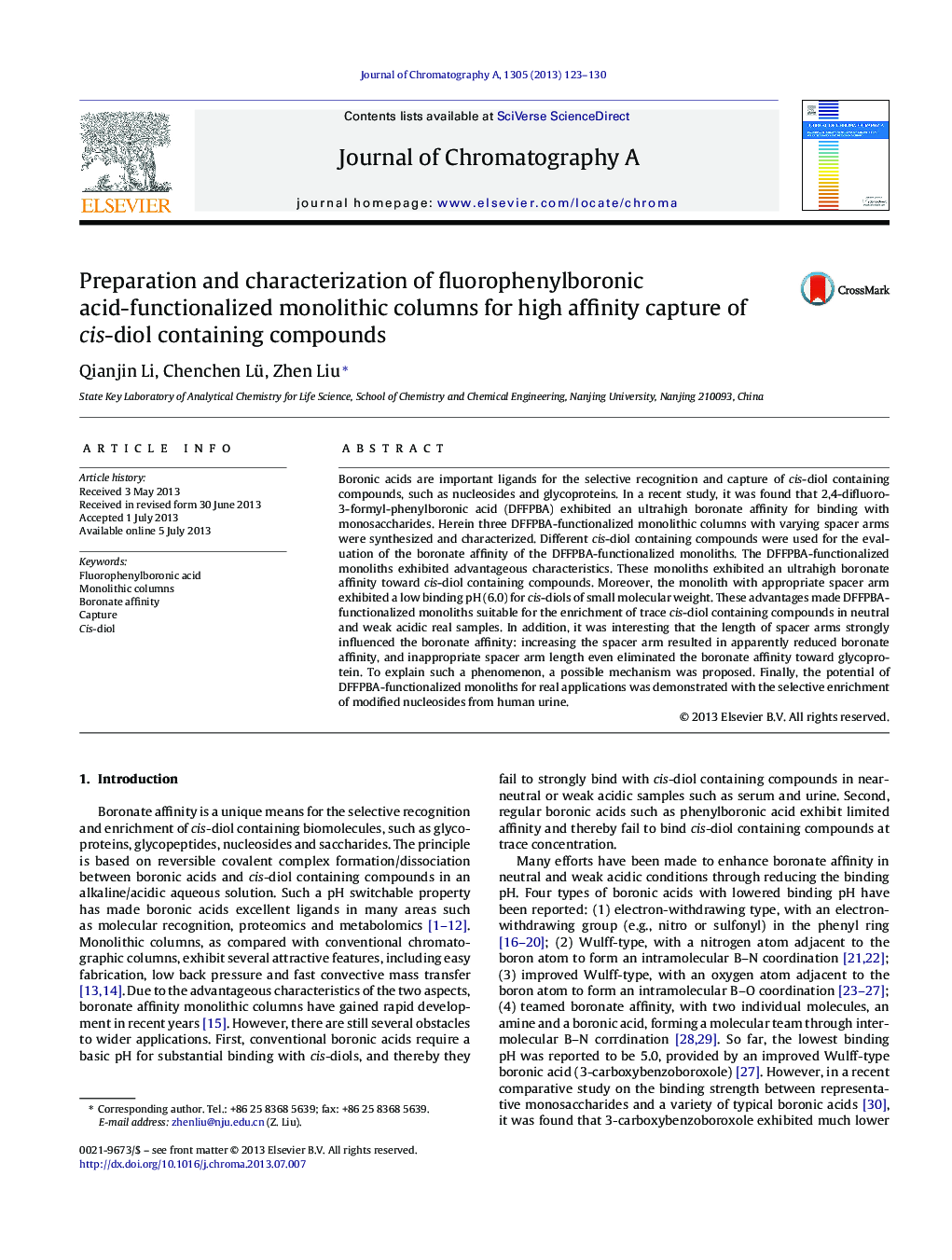| Article ID | Journal | Published Year | Pages | File Type |
|---|---|---|---|---|
| 7614185 | Journal of Chromatography A | 2013 | 8 Pages |
Abstract
Boronic acids are important ligands for the selective recognition and capture of cis-diol containing compounds, such as nucleosides and glycoproteins. In a recent study, it was found that 2,4-difluoro-3-formyl-phenylboronic acid (DFFPBA) exhibited an ultrahigh boronate affinity for binding with monosaccharides. Herein three DFFPBA-functionalized monolithic columns with varying spacer arms were synthesized and characterized. Different cis-diol containing compounds were used for the evaluation of the boronate affinity of the DFFPBA-functionalized monoliths. The DFFPBA-functionalized monoliths exhibited advantageous characteristics. These monoliths exhibited an ultrahigh boronate affinity toward cis-diol containing compounds. Moreover, the monolith with appropriate spacer arm exhibited a low binding pH (6.0) for cis-diols of small molecular weight. These advantages made DFFPBA-functionalized monoliths suitable for the enrichment of trace cis-diol containing compounds in neutral and weak acidic real samples. In addition, it was interesting that the length of spacer arms strongly influenced the boronate affinity: increasing the spacer arm resulted in apparently reduced boronate affinity, and inappropriate spacer arm length even eliminated the boronate affinity toward glycoprotein. To explain such a phenomenon, a possible mechanism was proposed. Finally, the potential of DFFPBA-functionalized monoliths for real applications was demonstrated with the selective enrichment of modified nucleosides from human urine.
Related Topics
Physical Sciences and Engineering
Chemistry
Analytical Chemistry
Authors
Qianjin Li, Chenchen Lü, Zhen Liu,
